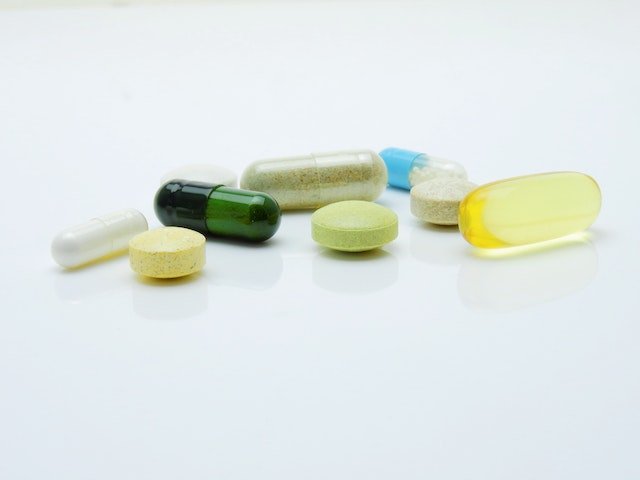How Medication Can Help Battle Alcohol Addiction
Due to its detrimental consequences on both physical and mental health, alcohol addiction may be a dangerous road to travel. People may escape the grip of alcoholism and start down the path to a better and happier life with the correct encouragement, willpower, and therapy. To admit the issue and ask for assistance takes tremendous guts, yet doing so opens the door to a better future. Although it is not simple, alcohol addiction recovery is unquestionably possible. People may recover their lives, rediscover their interests, repair relationships, and find satisfaction outside of the grip of addiction with the help of professionals, counseling, support groups, and a strong personal commitment.
Understanding Medication-Assisted Treatment (MAT)
To treat alcohol addiction, medication-assisted therapy (MAT), an evidence-based strategy, combines the use of pharmaceuticals with counseling and behavioral treatments. It is a thorough treatment plan that tries to lessen cravings, address withdrawal symptoms, and promote long-term recovery. MAT is aware of the complexity of addiction, which includes both physiological and psychosocial elements. It offers a comprehensive strategy to aid people in overcoming alcoholism by combining medicine and treatment.
Naltrexone: Blocking the Effects of Alcohol
A medicine called naltrexone is often used in alcohol medication treatment. It works by obstructing the brain’s enjoyment of alcohol, lowering drinking urges, and guarding against relapse. Naltrexone may be given orally as a tablet or intravenously as an extended-release injection. It aids people in regaining control over their alcohol usage and assists them on their road to recovery by inhibiting the opioid receptors in the brain. When taken in conjunction with therapy and other forms of assistance, naltrexone is most successful in addressing the psychological factors that underlie addiction.
Acamprosate: Restoring Chemical Balance in the Brain
Another drug used in medication-assisted therapy for alcohol addiction is acamprosate. It works by reestablishing the chemical equilibrium in the brain that has been upset by chronic alcohol use. Acamprosate is believed to lessen cravings and ease the pain brought on by alcohol withdrawal. It works best when used in conjunction with treatment and support and is normally taken orally in the form of pills. By easing the mental and physical pain that might develop throughout the recovery process, acamprosate aids people in maintaining their sobriety.
Disulfiram: Creating Aversion to Alcohol
Disulfiram is a drug that makes people averse to alcohol by making drinking alcohol cause unpleasant side effects. It operates by preventing the enzyme that breaks down alcohol, which causes a buildup of toxic byproducts that result in symptoms including nausea, vomiting, and flushing. Disulfiram’s unpleasant side effects act as a deterrent, assisting people to grow an aversion to alcohol and refrain from drinking. Due to the possibility of interactions with alcohol and other drugs, disulfiram is normally only taken under strict physician supervision.
The Role of Medication in Combination with Therapy
Alcohol addiction medications are an essential part of medication-assisted treatment, but they work best when combined with counseling and therapy. Therapy enables people to investigate and address the underlying emotional and psychological issues leading to their addiction, while drugs treat addiction’s physical components by lessening withdrawal symptoms and cravings. By treating both the physiological and psychological elements of alcohol addiction, medicine and therapy together provide full assistance for long-term recovery.
Benefits and Considerations of Medication-Assisted Treatment
Individuals battling alcohol addiction may benefit from medication-assisted therapy in several ways. It may lessen the intensity of withdrawal symptoms, control cravings, and improve recovery prospects. The medications used in MAT are carefully chosen depending on each patient’s requirements and may be changed as needed to improve treatment results. When choosing the best medication-assisted treatment strategy, it’s crucial to take possible side effects, drug combinations, and personal preferences into account. Additionally, it is essential to make sure that thorough counseling and support are provided in addition to medicine to meet the holistic requirements of people on their recovery path.
Conclusion
In conclusion, medicine may be a critical component of the fight against alcoholism and long-term rehabilitation. People who utilize the medicine in conjunction with counseling and therapy might find beneficial assistance on their path to recovery. A thorough strategy that treats both the physiological and psychosocial elements of alcohol overcoming addiction is provided through medication-assisted therapy. Each drug has a distinct function that helps people control cravings, restore chemical balance, or develop an aversion to alcohol, whether it be naltrexone, acamprosate, or disulfiram. However, it’s crucial to keep in mind that drugs work best when combined with support and counseling. It is essential to seek expert advice and assistance to customize the treatment plan to each patient’s requirements, guarantee adequate monitoring, and make required revisions.
Share this content:














Post Comment